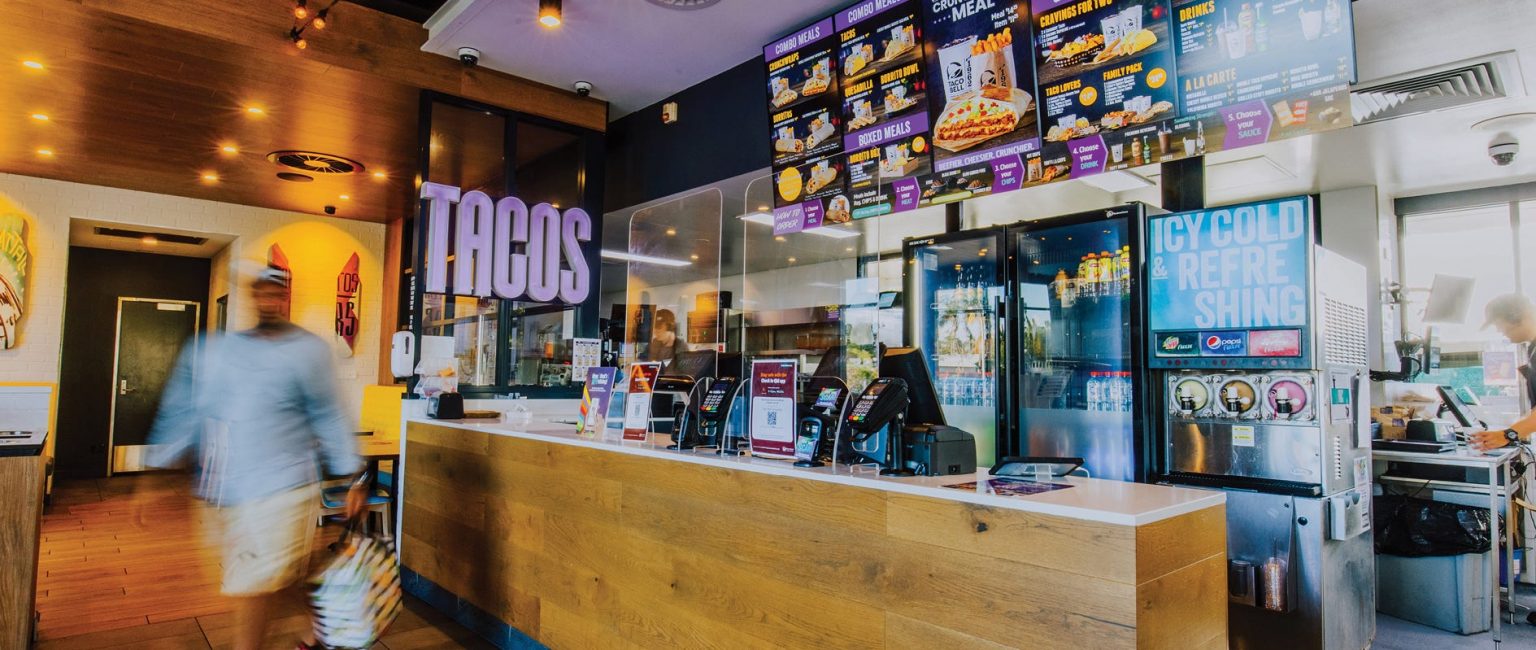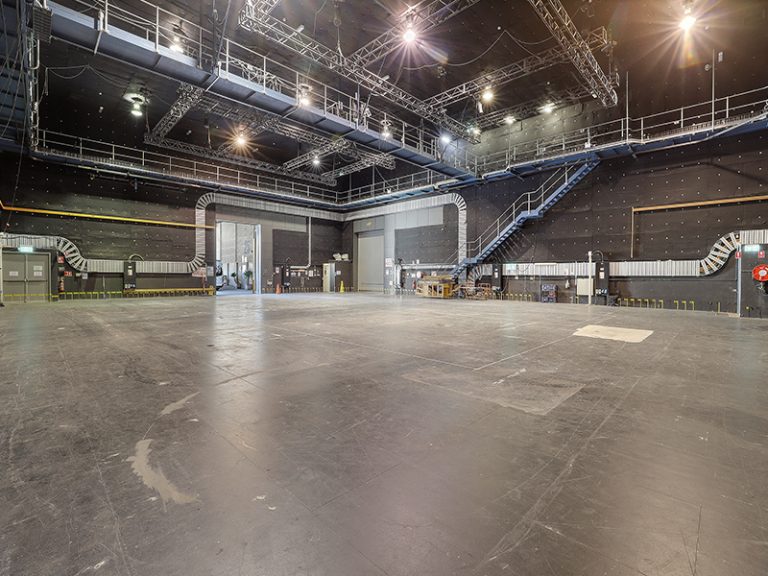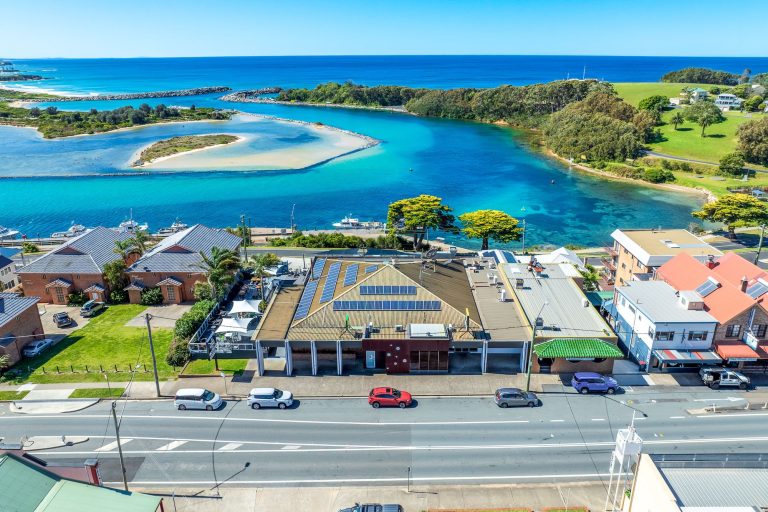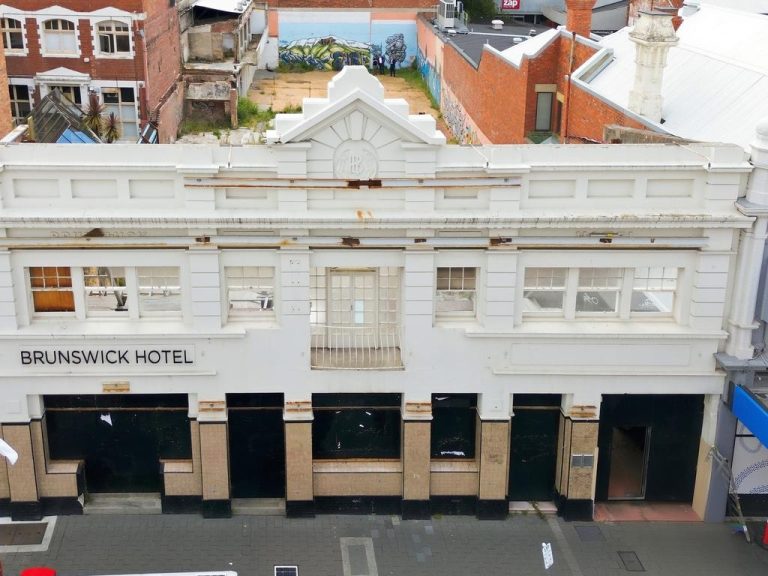Where property investors hungry for stability and growth are parking their money these days

Amid rising inflation and a somewhat sombre economic outlook, buyers are competing for ‘recession-proof’ commercial properties with long leases to quality tenants.
Essential service assets once again drove investor competition at the Burgess Rawson portfolio auctions, with six medical centres, three childcare centres, six fast food outlets, and three fuel stations on offer across the three days in Sydney, Melbourne, and Brisbane.
Australia-based private investors dominated the events, with 126 online and telephone bidders registered, in addition to walk-ins.

Collins Foods, the operators of Taco Bell and some KFC stores in Australia, has 343 restaurants throughout Australia, Germany, Netherlands, Japan and Thailand. Picture: realcommercial.com.au/for-sale
The auctions saw an overall success rate of 91.43%, which includes properties selling post-auction, with 32 going under the hammer for a combined $84.6 million on a blended yield of 5.61%. Three properties were passed in.
By comparison, Burgess Rawson’s September auctions saw a success rate of 76.92% with properties achieving $110 million on a blended yield of 5.04%.
Ongoing heat in the market
Burgess Rawson chief executive officer Ingrid Filmer said the “consistent and competitive bidding” across all three days reflected “the underlying strength of the investor market”, with buyers seeking good quality tenants and underpinned land value.
“There is plenty of heat in the market and investors are actively seeking out assets that fall within the prized essential services sector,” Ms Filmer said.

Medical assets are popular among investors because they often come with long-term tenants who are wedded to their location and loyal customer base. Picture: realcommercial.com.au/for-sale
“Medical centres, service stations, childcare centres, fast food, and established retail assets have consistently proven their resilience during the past two years.
“Opportunistic investors are actively channeling their capital to these sectors.”
She added that buyers were seeking set-and-forget investments with long WALEs (weighted average lease expiry).
“If you’re buying a 10- or 15-year lease, you’re really riding out any potential short-term wave.”
Hunger for fast food, fuel, and medical assets
The top sale over the three days was a 12,707sqm industrial asset in Hume in the ACT, tenanted by Australia’s largest glass producer Viridian, which sold for $11.01 million on a yield of 5.47%.
The sharpest yield was a Ray White office in Brunswick in Victoria, which sold for $3.26 million on a 3.35% yield.
Medical assets, which typically offer convenient and strategic locations and a loyal client base, attracted the most competitive bidding in Sydney.
A freehold medical investment in Coffs Harbour, on a long-term lease to Mid North Coast Cardiac Services, sold after multiple bids for $2.05 million on a 5.37% yield.
The asset attracted 89 enquiries, 19 contract requests and eight registered bidders.

Global fast food chain Carl’s Jr was established in 1956. It now has 3800 stores worldwide and 45 stores in Australia with an aggressive growth strategy in place. Picture: realcommercial.com.au/for-sale
There was fierce competition for fuel and fast food at the Melbourne event, in part due to a lack of stock over the past year, Ms Filmer said.
A brand-new Carl’s Jr Drive Thru on the Princes Highway in Beaconsfield, southeast of Melbourne, sold for $5.454 million on a 4.4% yield, while a brand-new Taco Bell, also in Beaconsfield, sold for $3.82 million on a yield of 4.58%.
At Brisbane’s auction, a Pizza Hut in Rockhampton sold after more than 30 bids for $591,000 on a 4.74% yield.
A United Petroleum in Devonport in Tasmania sold in Melbourne for $3.97 million on a 5.9% yield, while a BP on the Princes Highway in Beaconsfield sold for $5.35 million on a 5.42% yield.
In Charters Towers, an EG service station on a renewed five-year lease with options to 2042 sold for $1.421 million on a 6.69% yield.
Buyers seeking safety in long-term leases
Experts said it was clear investors were reacting to the challenging economic climate by decreasing their exposure to assets perceived as high risk and actively seeking stability through long-term leases to brand name and multinational tenants.
“Commercial property investors are continuing to chase assets providing critical services, such as medical centres, childcare centres, and service stations,” PropTrack economist Anne Flaherty said.
“To date, healthcare and social infrastructure assets haven’t experienced the decrease in values that would be expected following significant rises in interest rates, demonstrating a high level of confidence in these properties.”
The federal budget’s commitment to childcare and healthcare is expected to reinforce investor appetite for these sectors, she added.
Knight Frank chief economist Ben Burston said investors’ focus on secure income and long-term growth was “casting a spotlight on lease structures”.
“Investors are clearly preferencing assets underpinned by structures that will allow rents to keep pace with higher inflation,” he said.
“Investors are also mindful of higher interest rates and we are seeing yields moving out to reflect the higher cost of debt.”







